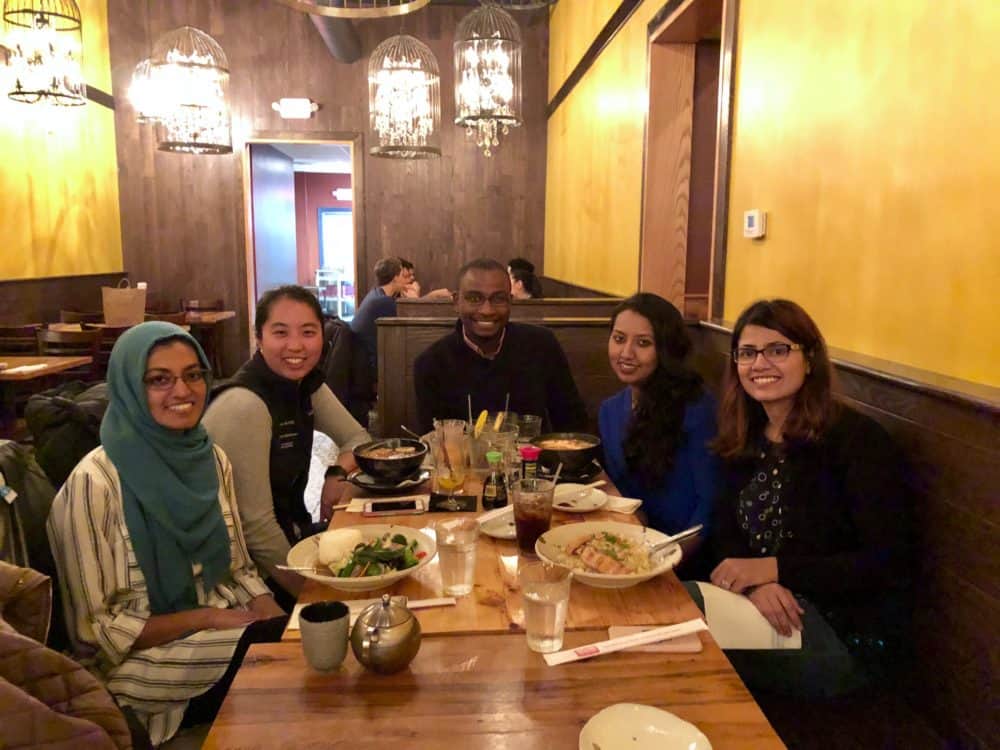
Our history
A series of publications by Fanuel Muindi and Moytrayee Guha dating back to 2013 in what is now known as the Civic Science Media Lab, provided the initial spark for building the collective. In one of those publications, Muindi and Guha broadly argued for creating a global fund for civic science education and engagement initiatives that would help drive the next generation of innovative programs around the world that accelerate access, diversity, and inclusivity in STEM. Explore our journey below:
-
2010
precursor to the lab
The journey started with a group called Run4Education that Fanuel Muindi co-founded with Shantal Marshall as graduate students at Stanford University. Run4Education worked to raise money for local charter schools in East Palo Alto (California) area schools by running marathons and other races.
-
2013
early discussions about the collective
This was the period when Fanuel Muindi and Moytrayee Guha started to deeply discuss how to meaningfully contribute to the global discussion about education and science in general. As a response, they submitted a letter to Nature to test an idea. The letter was published by Nature!
-
2014
more publications in Nature and Science
By this time, it was clear to Fanuel Muindi and Moytrayee Guha that there was great interest in providing insights about science education by using the power of words. Other publications followed. They realized that they couldn't do it alone and so they created a space to bring together likeminded people and initially named it the Guha Muindi Advocacy Group.
-
2015
initial residents join
Jessica W. Tsai and Joe Barington Keller become the initial residents to join the group. The first annual report is released. On Dec 3rd 2015, the stemadvocacy.org domain was formally registered marking the birth of collective.
-
2016
advisors come on board
Advisors begin to join the collective and the name is changed to the STEM Advocacy Group.
-
2016
Launch of Stories in Science in Dec 2016
The Civic Science Media Lab formally launches the Journal of Stories in Science
-
2017
first book published in July 2017
The Civic Science Media Lab's first book titled "Journeys in Science: Inspiring the Next Generation" is published by Elsevier. The book took 2 years to complete. It was authored by Fanuel Muindi and Jessica W. Tsai.
-
2017
more residents join between Oct-Nov 2017
The collective now includes 7 advisors and 12 residents covering various areas of science development. The collective renames itself to the Stem Advocacy Institute (in short SAi) and incorporates with the State of Massachusetts under the same name. It begins the formal 501(c)(3) application. The Civic Science Media Lab ran by Fanuel Muindi is formally hosted within the collective.
-
2018
Non Profit Recognition
The organization is formally recognized as a 501c(3) non profit on August 7, 2018. It secures its first temporary community office space in Central Square, Cambridge. 45 Prospect St, Cambridge, MA 02139
-
2019
SRC Receives its First Grant and Trademark
In February 2019, the organization received its first grant from the National Academy of Sciences/Story Collider for its founder, Fanuel Muindi, to attend the Sackler Colloquium, Advancing the Science and Practice of Science Communication: Misinformation About Science in the Public Sphere, on April 3-4, 2019 at UC Irvine. Additionally, The United States Patent and Trademark Office approved "Stories in Science" to be trademarked on June 8, 2019.
-
2022
The Resident Endowment is Formed
In December 2021, the Trustees approved the creation of the Resident Endowment. The goal for the endowment is to provide a perpetual source of professional development funding to support the residents in the collective.
-
2023
Transition to the Sai Resident Collective
In the summer of 2023, the collective underwent a significant rebranding, adopting the name Sai Resident Collective (SRC). This new designation underscores the organization's commitment to enhancing the support provided to its residents. Interestingly, the term "Sai" holds varied meanings in different cultures. In Japanese, it is a word for "rhino," symbolizing strength and resilience. In Sanskrit, "Sai" conveys the idea of "One who strives," reflecting dedication and perseverance. These diverse interpretations collectively enrich the organization's identity. For logistical reasons, the collective's legal name remains the Stem Advocacy Institute on paper thus allowing it to operate under both identities.
